Star Trek: The Original Series: Miasma Read online
Page 5
Darwa groaned. “Don’t remind me.”
“As long as necessary, Doctor,” Spock said. “No more, no less. I assure you that I am no more eager to prolong this expedition than you are, but much depends on the terrain and whatever other obstacles we may encounter. Beyond that, I cannot say.”
Chekov rubbed his sore neck. Dirt obscured his lightly toasted face. Unlike Darwa, he didn’t even try to brush off his soaked, defiled uniform. He gazed morosely in the direction Spock had indicated and irritably swatted away a swarm of tiny insects. “Join Starfleet, they said. It will be good for you, they said.”
McCoy took Spock aside for a moment.
“You sure this death march is worth it?” he asked quietly, not wanting to undermine Spock’s authority. Guess I have evolved, too, come to think of it. “Maybe we’d be better off digging in somewhere and trying to rig up some kind of shelter?”
“And how then would the Enterprise manage to find us in this environment?” Spock set off to the right, leading the way once more. “A planet is not easy to search without sensors. Even if they commence with the right hemisphere and continent, the conditions are hardly conducive to us being spotted from above. Our best hope remains getting as near as we can to our original destination, in the expectation that that is where a rescue mission will begin their search for us.” He raised his voice so that it would carry through the thin air. “In addition, should we succeed in reaching the signal’s point of origin, we may be able to employ whatever technology we find there to transmit a message to the Enterprise.”
McCoy guessed that Spock was throwing out that encouraging possibility to provide hope and bolster morale. Not something the old Spock would have concerned himself with, McCoy noted again, but maybe we have all gotten a bit older and wiser.
“Works for me,” he said. “Especially if it means we can warn Jim not to fire up his shields in those touchy clouds up there.”
“That thought had indeed crossed my mind,” Spock said, leaning heavily on his spear. Fatigue was beginning to crack his stoic veneer. “As has the pressing question of why the predator diverted from its path to attack Yost rather than myself.”
McCoy recalled how the charging leech had veered away from Spock to go after Yost instead, despite the fact that Spock had been nearer to the creature at first.
“Maybe that Vulcan blood of yours just wasn’t as tempting.”
“Perhaps so,” Spock replied. “You jest, Doctor, but for once your habitual gibes at my Vulcan physiology may hold some wisdom.” He contemplated his injured shoulder, where a greenish stain soaked through his rumpled white shirt, proclaiming that all this strenuous activity had caused his wound to start bleeding again. A judicious application of the right anticoagulant might have helped, had not those medication ampules been lost with Galileo. “As you have often noted, my copper-based blood chemistry is quite different from yours . . . and from Yost’s and Fisher’s.”
McCoy realized that Spock was serious. “You think your blood repelled the creature?”
“Quite possibly,” he said. “These predators are some variety of leech, after all. They may well be attracted to the iron in your blood . . . and discouraged by the copper in my own.” A pensive look came over his face as he pondered the implications of his theory. “Which suggests that we may have a means at hand to defend the party from these creatures.”
McCoy balked at the idea. “You can’t be suggesting . . .”
Spock nodded gravely.
“My blood, Doctor. We need to weaponize my blood.”
Seven
“Copernicus, you are cleared for departure.”
The space doors at the rear of the Enterprise’s cavernous landing bay were wide open, revealing the vacuum of space beyond. Instrumentation aboard the shuttlecraft confirmed that the ship’s shields were not in place. An airless black void beckoned.
“Roger that, Enterprise,” Kirk said from the helm of the shuttlecraft, replying to the launch control room overlooking the flight deck. “Firing thrusters now.”
Steaming white jets sprayed from the underside of Copernicus as the shuttlecraft lifted off from the flight deck and exited the Enterprise. Kirk waited until he was safely clear of his ship before engaging the shuttle’s impulse engine and setting a course for Varba II.
“Now to find our friends,” he said.
“Which would be substantially simpler,” Saavik observed, “if we knew where to look.”
She rode shotgun beside him in the copilot’s seat. She had volunteered to pilot the shuttlecraft, but Kirk had decided that her keen Vulcan intellect could be put to better use tracking the garbled signal from the planet and monitoring the scanners for any sign of the lost landing party. A pair of security officers, Cassano and Borkowski, occupied the passenger compartment. Kirk had been reluctant to take too many crew members down into the same amorphous peril that had apparently waylaid the crew of Galileo, but he’d decided that they might need additional manpower down on the planet, so he’d split the difference and gone with a leaner security detail. Plus they were going to need room in the shuttlecraft if they found the landing party.
No, he corrected himself. Not “if.” “When.”
The captain glanced at Saavik. “I don’t suppose you’re picking up any distress signals from Galileo or the landing party?”
“Negative, Captain. Only the original warning beacon in its distorted state. The planet’s atmosphere continues to be a significant source of interference.” She monitored the sensor displays. “It might be best to conduct our initial survey above the atmosphere, to minimize the interference.”
Kirk considered it. “But wouldn’t we have a better chance of picking something up if we went in closer?”
“Possibly,” she conceded. “I believe the human expression is ‘six of one, half a dozen of another.’ It is uncertain whether descending into the atmosphere would help or hinder our chances of detecting a signal from the landing party.”
“Understood,” Kirk said as the shuttlecraft cruised toward the planet. Patience was not his strong point, but there was something to be said for being cautious and methodical as well. “Let’s do it your way, going in slowly, and gradually lower our altitude if we don’t get any results.”
“That strikes me as a very logical approach, Captain.” She diligently worked the sensors, searching every frequency along the spectrum. “I regret that I cannot offer you a more concrete solution at this time.”
Kirk thought he caught an edge of frustration in her voice. Not that he blamed her. The planet’s infernal clouds had them flying blind, with their hands tied behind their backs. No sensors, no transporters, no communicators. Varba II might as well have been a black hole when it came to obtaining vital information.
“We’ll find them, Saavik, or die trying.”
She arched an eyebrow. “A curiously morbid expression, Captain. Almost Klingon-like in its fatalism, if you don’t mind me saying.”
Kirk didn’t like being compared to a Klingon, but he could see where Saavik might take the phrase the wrong way. “Believe it or not, Lieutenant, it was meant to be encouraging.”
“Indeed? How curious.” She lifted her eyes from the control panel to peer at the approaching planet. Its opaque yellow atmosphere withheld any glimpse of the world awaiting them. “I wish I shared your optimism, sir. An entire world lies before us, and there is little telling where the Galileo might have touched down once they encountered difficulties. The landing party could conceivably be anywhere on the planet, assuming they are still alive.”
“But we know where they were heading, more or less,” Kirk pointed out. “They were trying to locate the source of the warning signal, and, knowing Spock, he’d attempt to complete the mission if it was at all possible. So let’s track down that signal.” He shrugged. “If nothing else, it gives us a place to start.”
Eight
“This is insane, Spock,” McCoy protested. “You’ve lost enough blood as it is.”
“I am open to alternatives, Doctor. Unless you care to trust our fates to sticks and stones . . .”
Spock handed back to McCoy a hypospray with which he had been fiddling. “I have modified this instrument to dispense an aerosolized quantity of my blood. Now all that remains is for you to load it.” He held out his arm. “Promptly, if you will.”
McCoy inspected the empty device, noting that Spock had adjusted the nozzle to emit a fine spray. The applicator mechanism held an empty vial, waiting to be filled. The vial had previously held the last of McCoy’s anti-infection treatments.
“I don’t know, Spock. This goes against everything I’ve ever—”
“We cannot waste time debating the matter, Doctor. The predator—or predators—could attack again at any moment.”
The party had paused on a small wooded island circled by shallow, winding waterways. The detour around the amphibians’ lagoon had taken even longer than McCoy had feared, so they all needed to take a breather. McCoy felt dead on his feet, and he doubted if Chekov and Darwa were much better, despite their relative youth. No food, no sleep, no water, and constant vigilance had worn them all down, and the oppressive fog kept them from ever truly relaxing. If anything, the eerie mist had gotten even thicker and more ubiquitous, slowing their progress and adding to the perpetual sense of dread. McCoy wanted to think that the fog was helping to hide them from the leeches, but he suspected that it was the other way around.
“Look, Spock,” McCoy continued to argue, “maybe, if you hadn’t already been wounded, this might be doable, but, as it is, you’re already paler than you ought to be. More white around the gills than green, if you know what I mean. And I can’t even administer fluids to counteract the additional blood loss.”
“The situation is less than ideal,” Spock agreed. “But desperate times, as they say, require desperate measures. And our present circumstances are undeniably desperate, by any definition of the word. You should know, as a doctor, that you must sometimes risk killing a patient to save them from certain doom.”
McCoy scowled, but he couldn’t dispute that comparison.
“If you say so,” he grumbled. “But I’m doing this under protest.”
“Duly noted, Doctor. Proceed.”
He pressed the device against Spock’s left shoulder. It hissed as it extracted a small quantity of blood through his skin and shirt. At approximately thirty cubic centimeters, McCoy judged he’d taken enough and began to withdraw the hypospray, but Spock clamped his hand around McCoy’s wrist, holding it in place. The Vulcan’s grip was cold and clammy but surprisingly strong, considering his debilitated state.
“All the way, Doctor, to maximum capacity.”
“All right, damn you.” He filled the hypospray until it couldn’t hold anymore, taking a full seventy ccs of Spock’s dwindling supply of blood. “There. Satisfied now?”
“That depends, Doctor, on how many other hyposprays survived the crash.”
McCoy was afraid to look. An earlier inspection had found only a handful of instruments, some of them possibly damaged beyond repair. His handheld vital-signs reader, for instance, was pretty much dead, while most of the “surviving” medication vials had cracked and leaked their contents over the inside of the kit. There were no functional protoplasers to speak of, even if he’d dared activate them in the fog. “Look, Spock, let’s not get carried away here—”
“Red alert!” Chekov shouted from nearby. He pointed up at the canopy of clotted branches and vines overhead. “I saw something move!”
McCoy was surprised that Chekov could make out anything in the fog, but he tensed in fear. The doctor’s parched mouth went dryer still and his heart skipped a beat. Goose bumps sprouted beneath his soggy sleeves.
No, he thought. Not again!
Any hope that Chekov’s eyes had tricked him, or that it had just been the wind or some harmless arboreal life-form, was dashed when, with a fearsome screech, a hungry leech pounced from above, barely missing Chekov, who dived out of the way just in time. The creature keened in disappointment as Chekov rolled away through the mud and ferns, putting more distance between himself and the monster. Its hideous head swung back and forth, as though torn between attacking Chekov and Darwa, who was standing on the opposite side of the leech. The latter ran forward, stabbing at the creature’s scaly hide with her spear, jabbing its point between the armored plates, but the crude weapon did not appear to strike any vital organs. Only a thin red ichor leaked from the wound.
Angered, the leech whipped around, yanking the spear from Darwa’s grip. She backed away, looking around frantically for another weapon, even as Chekov scrambled to his feet across from her. Immersed as the endangered pair were in the fog, their phasers might as well have been sticks and rocks too.
“Doctor!” Spock shouted. “The hypospray!”
“Right!”
Adrenaline spurring him to action, McCoy drew back his arm and lobbed the device at the unarmed lieutenant.
“Darwa! Catch!”
To his relief, she deftly snatched the flying hypo out of the air. Thinking fast, she aimed it at the charging leech and triggered the emitter. A chartreuse mist sprayed from the hypo, infusing the rank air with a distinctly coppery aroma. Despite the danger to Darwa and the rest of them, McCoy couldn’t help wincing at the sight of Spock’s precious lifeblood being dispensed so profusely.
But the effect was immediate—and unmistakable. The leech recoiled from the spray, wheeling about to go after Chekov instead. “Commander!” Darwa shouted, and she hurled the hypo over the monster to Chekov, who defended himself with a second burst of vaporized Vulcan blood. The leech shrieked in protest again, shaking its head violently in reaction, before its revulsion apparently overcame its appetite. Four powerful hind legs propelled it back up into the overhanging branches, abandoning its intended prey for once. Leaves rustled as the creature disappeared into fog and foliage.
“Well, I’ll be damned,” McCoy whispered. “It worked.”
He wasn’t exactly sure how he felt about that. The blood-based repellent had clearly saved Chekov or Darwa from becoming the leeches’ next victim, that was for certain; but this was hardly a viable long-term solution. Spock only had so much blood to spare.
He glanced over at his patient, who suddenly sat up straight and called out urgently: “Chekov! Behind you!”
A second leech (or maybe it was the same one?) bounded from the fog, coming at Chekov from the ground rather than the treetops this time, only to get a face full of green spray, thanks to Chekov’s quick reflexes. Spitting and hissing, the monster skidded to a halt before retreating back into the fog. Angry wails echoed through the surrounding brush, seemingly coming from all around the besieged landing party. McCoy wanted to think that it only sounded like multiple beasts, but he knew they couldn’t be so lucky. Those weren’t just echoes he was hearing.
“Yes,” Chekov said dourly. He kept the hypo raised and ready. “There is definitely more than one of them.”
“So it would seem.” Spock began to rise, only to totter unsteadily on his feet. He braced himself against his spear, using it to prop himself up. He looked faint, and there was an uncharacteristic quaver in his voice. “Let us hope that they do not routinely hunt in packs.”
“Easy there, Spock.” McCoy reached out to steady his friend. “You’re not exactly looking your best.”
“Neither are any of us, Doctor, but we all are still alive, despite the best efforts of the predators.” He rallied slightly, possibly out of sheer Vulcan stubbornness. “Our odds of survival have just increased significantly.”
McCoy had his doubts. “For Pete’s sake, man, you can barely stand up, let alone keep on trekking through this wet, hazy hellhole.”
“Merely a moment’s di
zziness,” Spock insisted. “Do not concern yourself. Kindly refill Mister Chekov’s weapon . . . and procure as many other hyposprays as you can. As well as any empty ampules that can be used for refills.”
The order, and its dire implications, appalled McCoy. “But—”
“Do it, Doctor, while we still have a chance.”
Nine
A groan escaped Saavik’s lips. Her head sagged, dipping forward, and she clutched the control panel before her to steady herself. She closed her eyes and bit down on her lip to keep from making another sound. Her uncharacteristic distress caught Kirk’s attention.
“Saavik?” he asked. “Are you all right?”
Copernicus was descending toward Varba II in a measured fashion, orbiting the planet at lower and lower altitudes as it gradually approached the upper atmosphere. So far their orbital sweeps had failed to yield any positive results. At best, they could pick up only a compromised version of the original warning beacon. Nothing from Galileo or the landing party.
“I am fine, Captain.” She lifted her head and sat up straighter. “Just a momentary weakness. I suddenly found myself feeling light-headed.”
Kirk eyed her with concern. “Are you ill? Do we need to turn back?”
He was reluctant to abandon the search when it had barely begun, but if Saavik needed to report to sickbay, he might not have any other choice. Funny, he thought, she seemed fine before.
“No, Captain. I am quite—” Her face paled and her head reeled atop her neck, as though she was suddenly stricken again. Her breathing grew ragged. White knuckles gripped the control panel.
That clinches it, Kirk thought. He had no idea what was wrong with Saavik, but it was obvious something was. He hit the comm button on the helm controls. “Kirk to Enterprise, we have a medical situation—”

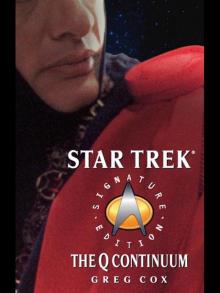 Q-Space
Q-Space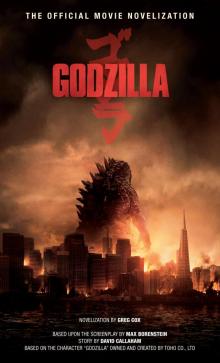 Godzilla - the Official Movie Novelization
Godzilla - the Official Movie Novelization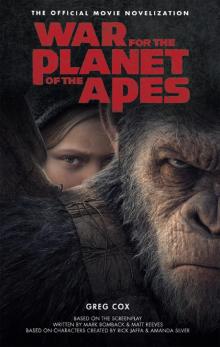 War for the Planet of the Apes: Official Movie Novelization
War for the Planet of the Apes: Official Movie Novelization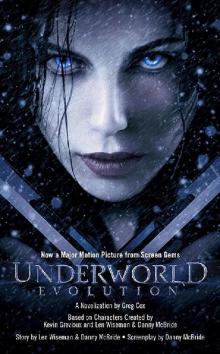 Underworld: Evolution
Underworld: Evolution Underworld
Underworld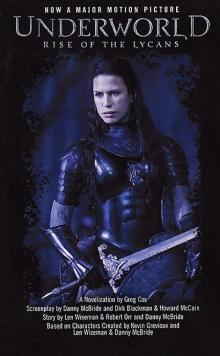 Rise of the Lycans
Rise of the Lycans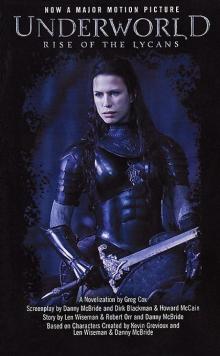 04 - Rise of the Lycans
04 - Rise of the Lycans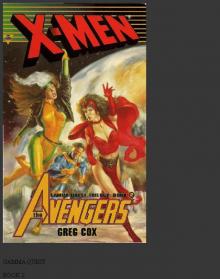 X-Men and the Avengers: Search and Rescue
X-Men and the Avengers: Search and Rescue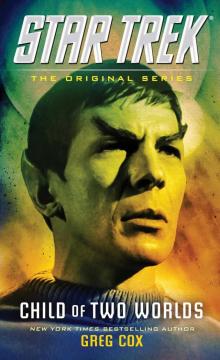 Child of Two Worlds
Child of Two Worlds Welcome to Promise City
Welcome to Promise City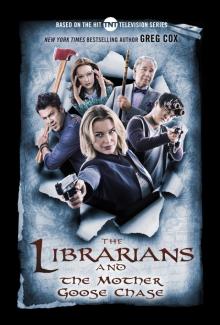 The Librarians and the Mother Goose Chase
The Librarians and the Mother Goose Chase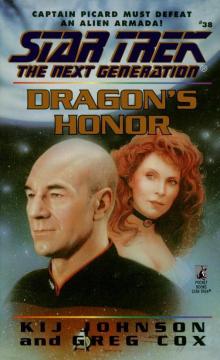 Dragon's Honor
Dragon's Honor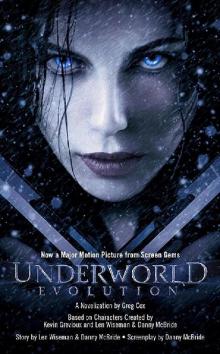 03 - Evolution
03 - Evolution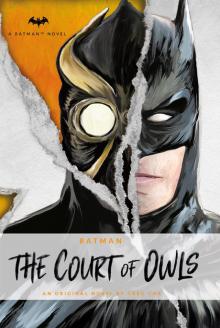 DC Comics novels--Batman
DC Comics novels--Batman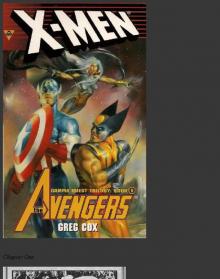 X-Men and the Avengers: Lost and Found
X-Men and the Avengers: Lost and Found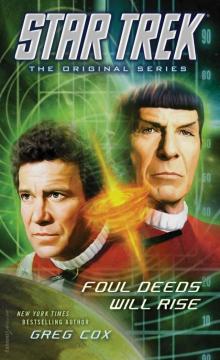 Foul Deeds Will Rise
Foul Deeds Will Rise 02 - Blood Enemy
02 - Blood Enemy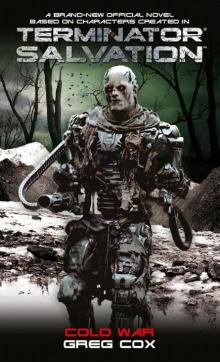 Terminator Salvation: Cold War
Terminator Salvation: Cold War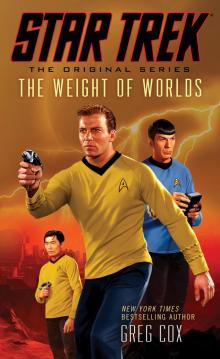 The Weight of Worlds
The Weight of Worlds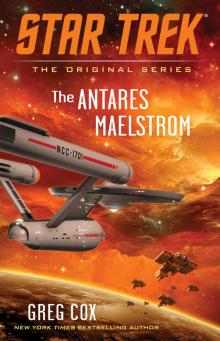 The Antares Maelstrom
The Antares Maelstrom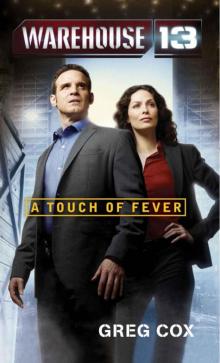 Warehouse 13: A Touch of Fever
Warehouse 13: A Touch of Fever Underworld: Blood Enemy
Underworld: Blood Enemy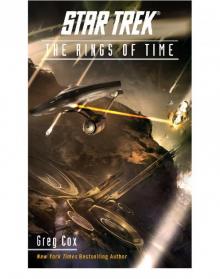 The Rise and Fall of Khan Noonien Singh
The Rise and Fall of Khan Noonien Singh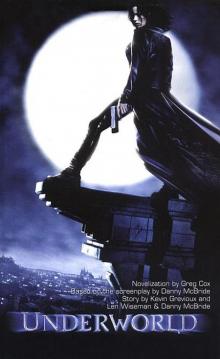 01 - Underworld
01 - Underworld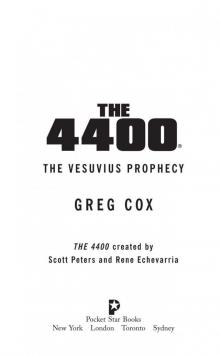 The 4400- the Vesuvius Prophecy
The 4400- the Vesuvius Prophecy Assignment: Eternity
Assignment: Eternity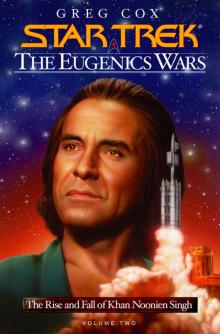 The Eugenics Wars, Vol. 2: The Rise and Fall of Khan Noonien Singh
The Eugenics Wars, Vol. 2: The Rise and Fall of Khan Noonien Singh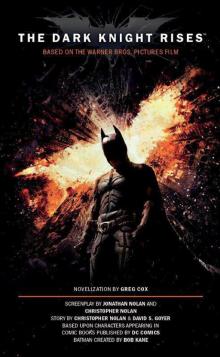 The Dark Knight Rises: The Official Novelization
The Dark Knight Rises: The Official Novelization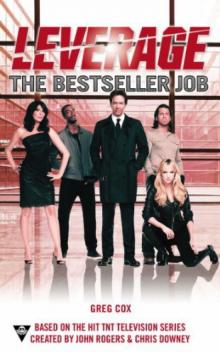 The Bestseller Job
The Bestseller Job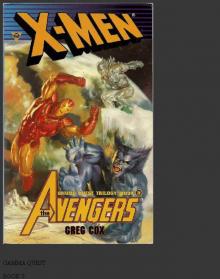 X-Men and the Avengers: Friend or Foe?
X-Men and the Avengers: Friend or Foe?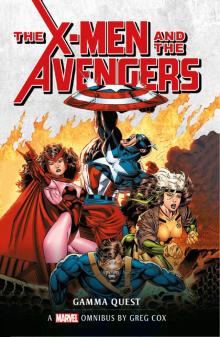 Marvel Classic Novels--X-Men and the Avengers
Marvel Classic Novels--X-Men and the Avengers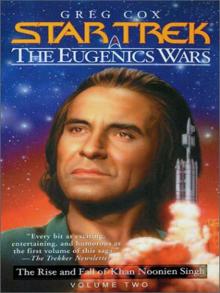 STAR TREK: TOS - The Eugenics Wars, Volume Two
STAR TREK: TOS - The Eugenics Wars, Volume Two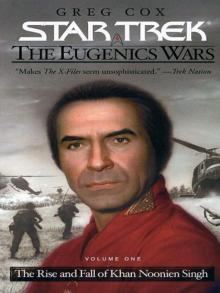 STAR TREK: TOS - The Eugenics Wars, Volume One
STAR TREK: TOS - The Eugenics Wars, Volume One The Black Shore
The Black Shore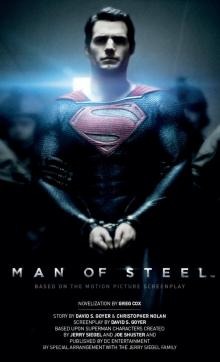 Man of Steel: The Official Movie Novelization
Man of Steel: The Official Movie Novelization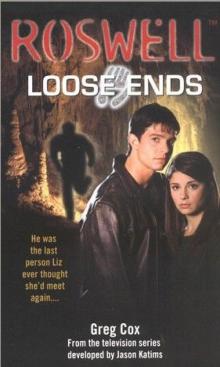 Loose ends r-1
Loose ends r-1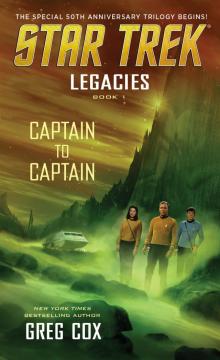 Legacies
Legacies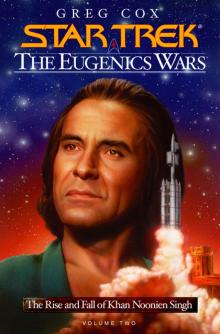 The Eugenics Wars, Volume Two
The Eugenics Wars, Volume Two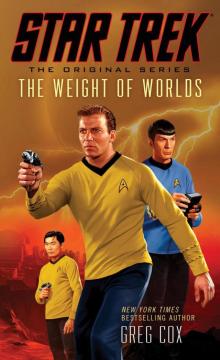 Star Trek: The Original Series - 148 - The Weight of Worlds
Star Trek: The Original Series - 148 - The Weight of Worlds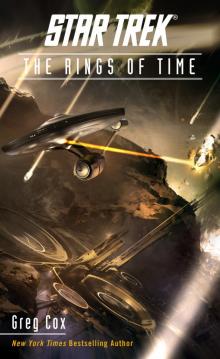 Star Trek: The Original Series: The Rings of Time
Star Trek: The Original Series: The Rings of Time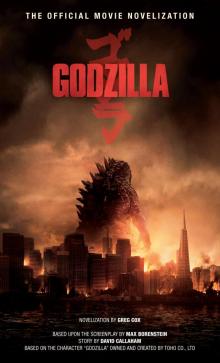 Godzilla--The Official Movie Novelization
Godzilla--The Official Movie Novelization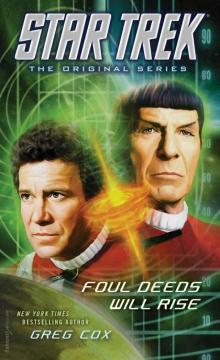 Star Trek: The Original Series - 160 - Foul Deeds Will Rise
Star Trek: The Original Series - 160 - Foul Deeds Will Rise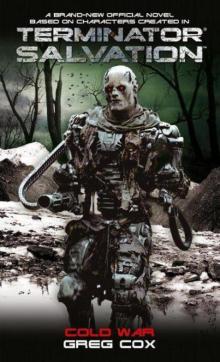 Terminator Salvation: Cold War ts-3
Terminator Salvation: Cold War ts-3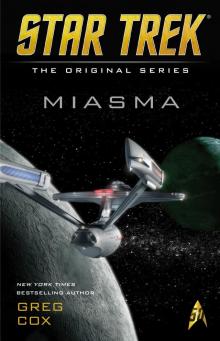 Star Trek: The Original Series: Miasma
Star Trek: The Original Series: Miasma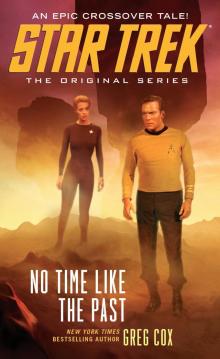 Star Trek: The Original Series: No Time Like the Past
Star Trek: The Original Series: No Time Like the Past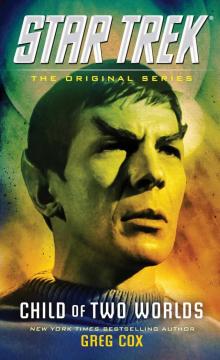 Child of Two Worlds (Star Trek: The Original Series)
Child of Two Worlds (Star Trek: The Original Series) THE 4400® WELCOME TO PROMISE CITY
THE 4400® WELCOME TO PROMISE CITY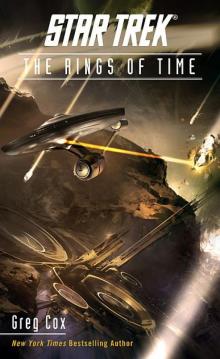 Star Trek: The Original Series: The Rings of Time (star trek: the original series)
Star Trek: The Original Series: The Rings of Time (star trek: the original series) To Reign in Hell: The Exile of Khan Noonien Singh
To Reign in Hell: The Exile of Khan Noonien Singh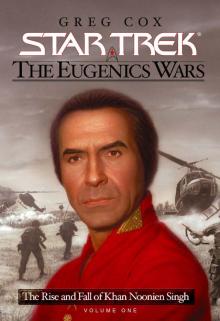 Star Trek: The Eugenics War, Vol. 1
Star Trek: The Eugenics War, Vol. 1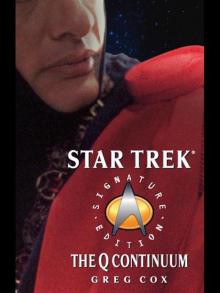 The Q Continuum
The Q Continuum